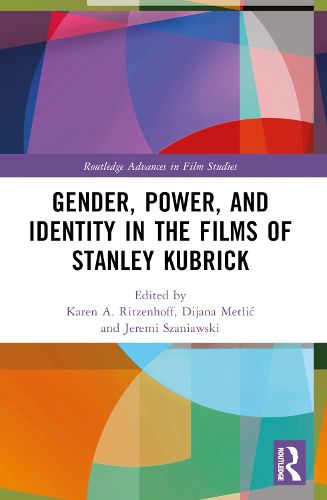Readings Newsletter
Become a Readings Member to make your shopping experience even easier.
Sign in or sign up for free!
You’re not far away from qualifying for FREE standard shipping within Australia
You’ve qualified for FREE standard shipping within Australia
The cart is loading…






This volume features a set of thought-provoking and long overdue approaches to situating Stanley Kubrick's films in contemporary debates around gender, race, and age-with a focus on women's representations.
Offering new historical and critical perspectives on Kubrick's cinema, the book asks how his work should be viewed bearing in mind issues of gender equality, sexual harassment, and abuse. The authors tackle issues such as Kubrick's at times questionable relationships with his actresses and former wives; the dynamics of power, misogyny, and miscegenation in his films; and auteur "apologism," among others. The selections delineate these complex contours of Kubrick's work by drawing on archival sources, engaging in close readings of specific films, and exploring Kubrick through unorthodox venture points.
With an interdisciplinary scope and social justice-centered focus, this book offers new perspectives on a well-established area of study. It will appeal to scholars and upper-level students of film studies, media studies, gender studies, and visual culture, as well as to fans of the director interested in revisiting his work from a new perspective.
$9.00 standard shipping within Australia
FREE standard shipping within Australia for orders over $100.00
Express & International shipping calculated at checkout
This volume features a set of thought-provoking and long overdue approaches to situating Stanley Kubrick's films in contemporary debates around gender, race, and age-with a focus on women's representations.
Offering new historical and critical perspectives on Kubrick's cinema, the book asks how his work should be viewed bearing in mind issues of gender equality, sexual harassment, and abuse. The authors tackle issues such as Kubrick's at times questionable relationships with his actresses and former wives; the dynamics of power, misogyny, and miscegenation in his films; and auteur "apologism," among others. The selections delineate these complex contours of Kubrick's work by drawing on archival sources, engaging in close readings of specific films, and exploring Kubrick through unorthodox venture points.
With an interdisciplinary scope and social justice-centered focus, this book offers new perspectives on a well-established area of study. It will appeal to scholars and upper-level students of film studies, media studies, gender studies, and visual culture, as well as to fans of the director interested in revisiting his work from a new perspective.